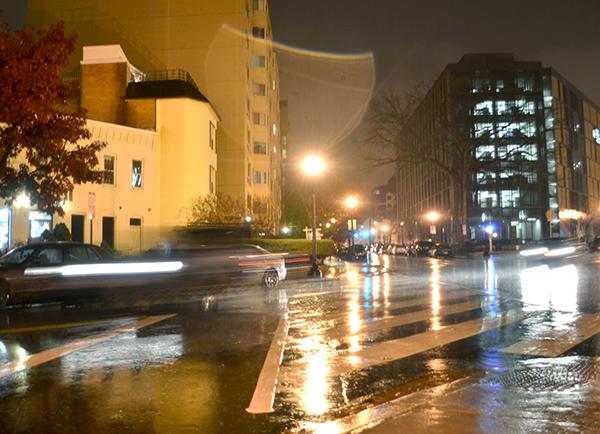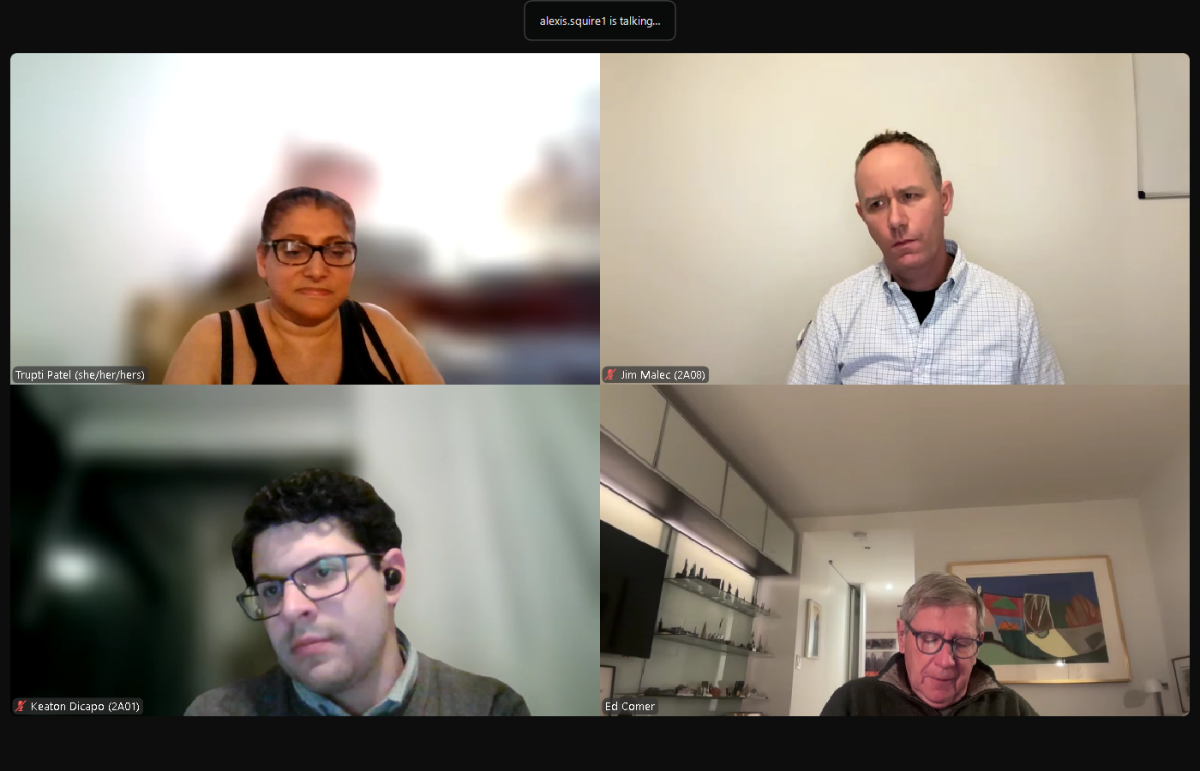The Metropolitan Police Department’s assistant chief says he can’t remember the last time one victim has reported being sexually assaulted by multiple attackers in D.C.
But nearly two weeks ago, a 21-year-old GW student said she was attacked by three men in an alleyway just off campus. MPD Assistant Chief Peter Newsham said police have few leads, and don’t know if the alleged attackers are also GW students.
The female student did not know the suspects, who were described as white men in their 20s.
“It’s very disturbing for us to know that something like that has happened to a student,” Newsham said. “Although sex is involved in the crime, it’s really a crime of violence. It’s a violent behavior by the criminals. And to me it’s very disturbing that you would have more than one person involved in this.”

The student reported that the incident occurred at about 12:30 a.m. when she was walking through an alleyway at 2413 I St. A suspect pinned her against the brick wall while another suspect penetrated her vagina with his fingers “against her will,” according to a police report.
She was brought to a hospital for “apparent minor injuries” after the incident, according to the report.
MPD classified the Nov. 22 attack as first-degree sexual abuse, the highest level for a sexual assault crime. Sexual assault advocates say under the FBI’s broader definition, the incident is considered a rape because it involved non-consensual penetration with a body part.
Newsham said the rape allegedly occurred in a “very safe part of the city,” and the department’s top priority is finding the suspects. Last year, there were no sex abuses reported to MPD on New Hampshire Avenue between 24th and I streets, but so far this year, there have been three reported, according to D.C. crime data.
Newsham has spent more than 20 years at MPD. After its sexual assault unit was criticized in 2013 for mishandling sexual assault cases and incorrectly filing reports, Newsham helped improve the way MPD responds to sexual assault, sitting in on hours-long hearings with survivors and city leaders.
A few days after the assault, GW sent an alert by email asking students with any information to call MPD. A flyer attached in the email included further descriptions of the suspects and also listed the cell phone numbers of the two detectives in charge of the case, who did not return requests for comment.
The first suspect, who allegedly pinned the student against the wall, reportedly had light brown hair “that’s puffy up top and closer on the sides,” was wearing a dark T-shirt with “Fitch” written across the front and was 6-foot-3. The second suspect was described as wearing a dark V-neck T-shirt and a black Nike Fuel band on his right wrist, and was shorter than the first suspect.
MPD has no other details about the third suspect, though he was described as a white man in his 20s like the other suspects. Newsham said the third suspect would be charged based on what information is found during the investigation. The police report only said the third suspect “approached” the student with the other two.
Those convicted of first-degree sexual abuse can be imprisoned for life if they are found guilty of working with accomplices, according to D.C. law.
It’s common for MPD to send out information about suspects to communities, Newsham said, and if an incident happens near a college campus, the department sends the bulletin out to the school to relay to students.
“The information from the community is the most important information we get in closing our cases,” he said.
Rory Muhammad, GW’s new sexual assault prevention leader, did not return request for comment about how the University is responding to the reported crime.
University spokeswoman Maralee Csellar said she could not comment on whether the student is using GW resources due to privacy concerns, but said the University has reached out to her.

“We offered support and services as we do with anybody that we learn about or approaches us in that aspect, but to what level she is utilizing our resources, that’s private information,” Csellar said. “We offered all the support and services that the University does when we learn of these types of things.”
The incident involving strangers is at least the second to be reported in the I Street area this semester. In October, a man allegedly attempted to sexually abuse two female students outside the Foggy Bottom Metro station.
Kim Lonsway, the research director of End Violence Against Women International, said universities across the country should increase outreach programs and give students multiple ways to report sexual assaults.
Lonsway added that oftentimes, after sexual assaults are reported on campus and the university is alerted to the incident, the community can be in shock, especially when the assault involves multiple suspects.
“As a society, we don’t want to believe that sexual assault happens as much as it does in general, but I think aspects like that are more unbelievable for people,” she said.
Campus security expert S. Daniel Carter said when a person is sexually assaulted by a stranger, he or she is more likely to report the crime to the police. When assaults occur at a social event like a party, “there are a lot of social barriers and stigmas attached to reporting,” he said.
Multiple-suspect sexual assaults are more common on college campuses, but they usually occur when the survivor has some familiarity with the suspects, said Bridgette Harwood, co-executive director of legal services at the Network for Victim Recovery of D.C.
“You’re describing a random-stranger attack by three people,” she said. “This is an awful, awful thing, but it’s so uncommon in the world of what sexual violence looks like.”
Colleen Murphy contributed reporting.







